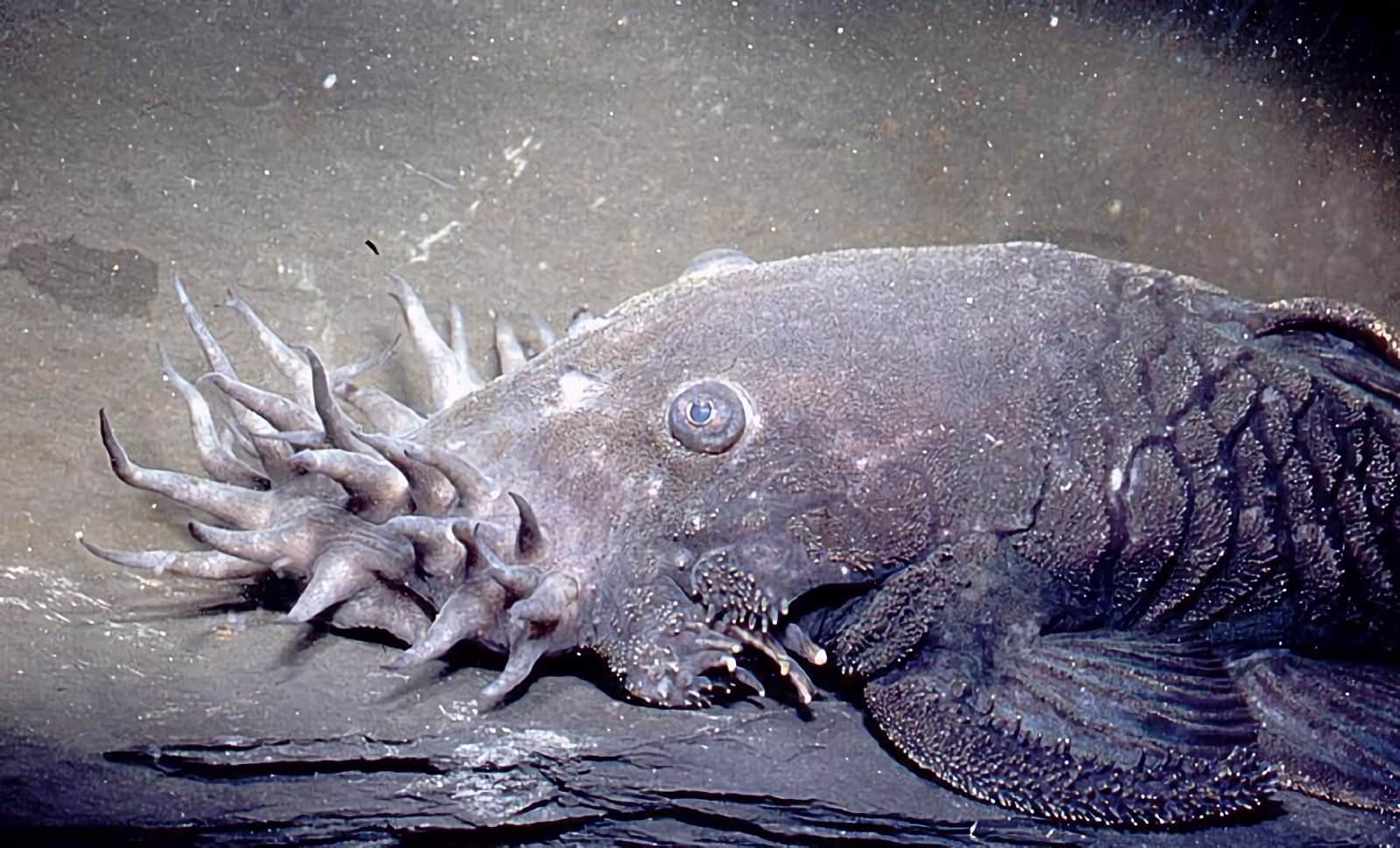The Electric Catfish and 6 More Bizarre Catfish Species
Daniel Xu 01.25.16

These are not the kind of catfish that you go noodling for. After scouring the internet, we’ve concluded rather unscientifically that catfish are some of the weirdest fish out there. It certainly helps that there’s loads of different catfish species, from the ones with multiple rows of needle-sharp teeth, to the ones that give off electricity, swim upside-down, have razors on their sides, and are simply too big for five grown men to carry.
Here are seven of the most bizarre catfish species we’ve found. Would you like to go fishing for any of these?
1. The electric catfish

This is one catfish you don’t really want on the end of your line, unless you’re fond of electric shocks. Typically found in tropical Africa and specifically the Nile River, these fish use their electric abilities to both stun prey and ward off predators. According to researchers, the catfish can also be trained to release electric discharges on command.
That means that any day now, we can probably expect a mad scientist to train an army of these fish. Thankfully, their discharges are not known to be fatal to humans.
You can watch a pet owner testing his catfish’s electric “powers” below:
2. The “alien” catfish that nobody could figure out

This bizarre catfish is so strange that scientists named it Kryptoglanis shajii, with the krypto part coming from the Greek word for “secret” or “hidden.” What makes this tiny fish so strange is its skeletal structure, which is significantly different from almost every other catfish species in existence. It also has four rows of teeth.
Yeah, if this fish was any bigger, it would be the source of many nightmares. As it is, the fish is only about the size of an adult human’s little finger. You can read more about this fish here.
3. The Medusa catfish

Looks more like a Cthulhu catfish to us, but Medusa is also a good fit for this strange species. This is the Ancistrus ranunculus, a catfish notable for the fleshy tentacles on its snout. Other than that, the Medusa catfish is disappointingly mundane. It can grow on average up to five inches long and is found in South America.
The Medusa catfish is commonly sold as an aquarium fish, where it presumably terrorizes small sunken cities and plots the downfall of mankind.
4. The blotched upside-down catfish

The blotched upside-down catfish is one of several catfish species that have a habit of swimming upside-down. It is generally believed to be a feeding strategy since this fish commonly grazes on the underside of submerged logs or other objects. The side effect is that to us it looks very strange.
Imagine walking backwards all day just to get some lunch.
5. The living sawblade catfish

Ouch, watch your hands around this fish. The ripsaw catfish, or cuiu cuiu, is a catfish native to the Amazon that has bony thorns on its sides. It is a very old species, and like many ancient fish, the cuiu cuiu has armored scales to protect itself from predators. Unlike other armored fish, however, this catfish’s thorny plates are meant to cut and tear predators foolish enough to try and eat it.
Surprisingly, there are anglers that like to go after these swimming razors.
Handle with care.
6. The “Greedo” catfish

This fish takes its place on the list primarily because of its star power. Star Wars, that is!
We’ll wait until you stop cringing from that horrible pun.
This suckermouth armored catfish was discovered by Jonathan Armbruster, a professor at Auburn University, who named it Peckoltia greedoi. The most noticeable features of the fish are its large eyes, which resemble a minor character in the first Star Wars film named Greedo. You can read more about this fish here.
You can also hear Armbruster describe the fish below:
7. Mekong giant catfish

Weighing up to 770 pounds and measuring nearly nine feet in length, the Mekong giant is the world’s largest freshwater fish. Generally, Mekong giants are even larger than the famed wels catfish, although the latter is much easier to get a fishing license for. The Mekong giant is considered a threatened species in its native range in Southeastern Asia, and conservationists are now attempting to protect the fish from poaching and habitat loss. Back when the fish were plentiful, fishermen reportedly performed special rituals before catching Mekong giants.

